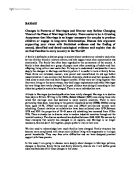Political parties with no exception keep away from the divorce issue. But there are individuals in both leading parties who are soft on divorce, and although they do not speak openly in favour of the topic, their views are well known.
Prime Minister Eddie Fenech Adami, the leader of the Nationalist Party (PN), who is a devout and practising Catholic, argues against its introduction. PN Secretary General Joe Saliba added that the Nationalist government firmly believed divorce wasn’t a solution to problems Maltese married couples are experiencing. “Quite the opposite”, he said. “The government believes that the introduction of divorce will weaken the Maltese family, hence society’s fabric and the hardship suffered by children will know no restraints”. The PN Secretary General stressed that the government had already undertaken measures to strengthen the institution of marriage and to safeguard the children’s well being. He said: “The Nationalist Party’s stand is clear. It is committed to protect and strengthen the Maltese family”
Dr. Alfred Sant, leader of the Labour Party, is known to be more liberal. Though he has not spoken out in favour of divorce, he had appointed a commission to look at the issue during his tenure as a Prime Minister.
The introduction of divorce in Malta is not on the cards of any political party. Yet, it has to be said that in the 1992 and 1996 elections it was a pillar in the Alternattiva Demokratika’s (AD) electoral campaign. Now, it appears that the Greens are no longer keen on promoting divorce as an electoral issue. AD Chairman, Dr. Harry Vassallo, said that, although as a Catholic, divorce was not the option for him; others must be given the freedom to make their choice.
The tragedy of divorce comes to fore when children are involved. There is innumerable proof that children within separated families are more prone to face problems as they become teenagers. In the article “The reality of divorce”, on “The Sunday Times” dated 7th December 1997, it is stated that divorce is the worst psychological trauma that children can experience, with tragic consequences for the future. Custody litigation damages the children regardless of the result. As important as money is, the economic consequences of fighting in court can be dwarfed by the impact it will have on children. On-going parental conflict is generally the single most damaging stressor for children. There are several major hypotheses regarding the causes of children’s difficulties. These include: 1) Parental Loss, 2) Economic Loss, 3) More Life Stress, 4) Poor Parental Adjustment, 5) Lack of Parental Competence, and 6) Exposure to Interparental Conflict. This same article also states that, it has been proved from family studies that children of divorcees will do badly at school, have more social problems, and when they get married are more likely to divorce. On the other hand, those who argue in favour of divorce state that it tends to offer stability to single parent families. Divorce gives the spouses the right to find a new partner and remarry. Children from the first marriage are given the chance to grow up forming part of a new family.
Malta can no longer turn a blind eye to the increased frequency of marital dysfunction. A step forward towards this direction was the setting up of The Family Court, which was officially inaugurated on the 16th December 2003. The Family Court is a proven and effective means of mediation. Mediation is thought of as a means of facilitated negotiation. The mediator's role is to assist parties to negotiate their own terms of agreement. This takes into account arrangements for alimony, child custody and support, and division of property. The most important benefit of mediation in family law and child support cases is the preservation of the relationship that must exist between parents. Family mediation is intended to enhance that potential for growth and to help couples and their children design a future that is tailor-made to the needs of a newly restructured family.
Despite the effects that divorce has, especially those on children, and the fact that in Malta divorce is still not legalized, many ask the question: ‘Will divorce ever become a reality?’. Very probably it will, but not under the Eddie Fenech Adami administration which is vehemently against its introduction. Sooner or later despite the opposition of the church, some form of divorce legislation will have to be introduced in Malta.
This topic leaves me with many mixed feelings. Before reading the article of M.P.M Richards mentioned earlier on, I previously thought that divorce in our country should be legalized, as I felt that it is less painful for youngsters to live apart from one parent than to be brought up in an unhappy home. However, I now have second thoughts about this, as I realize that children are greatly affected by the process of divorce, and realize that’s it is not at all easy to live in an alternate family.
References:
-
- The Sunday Times
- The Times of Malta







